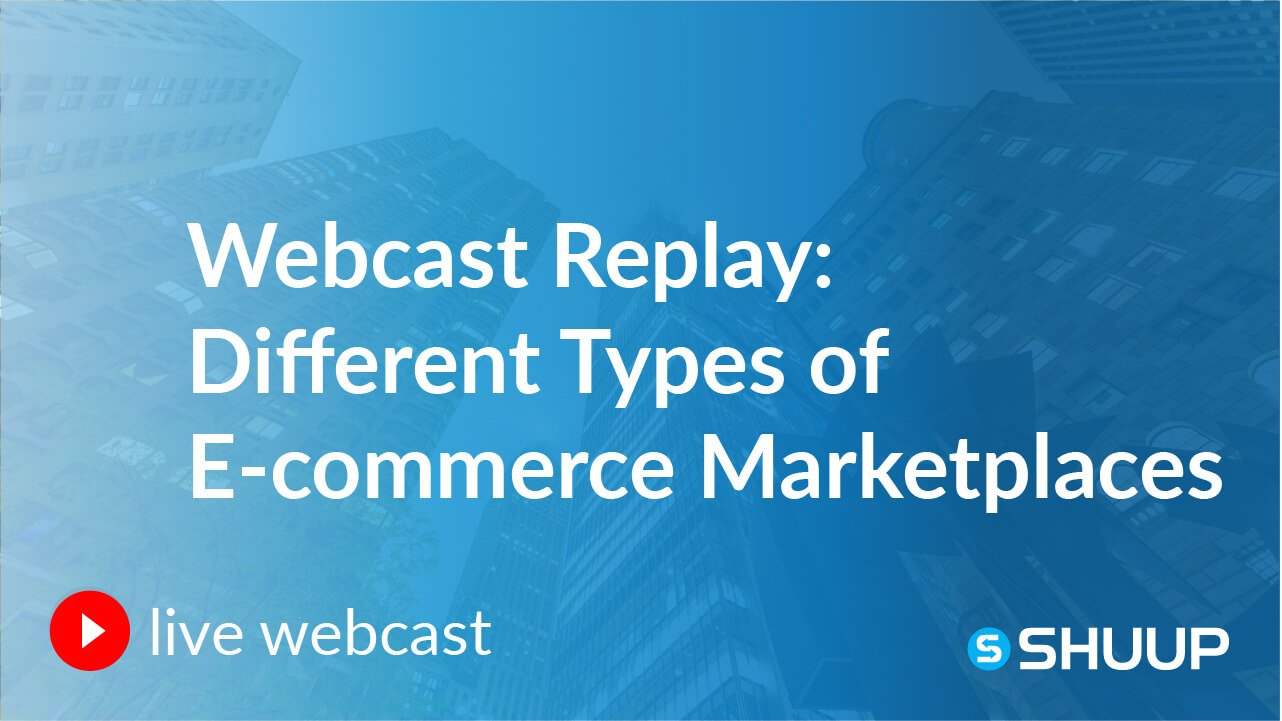In this webcast we discuss ecommerce integrations for your marketplace. Shuup Technical Sales Director, Wes Garlock, explains types of integrations, and what we use in Shuup.
Integration vs. Data Import
Wes discusses the difference between integration and data imports. Sometimes data import is mistaken for integration, whereas they are very different.
Data importers simply let you upload data from external sources.
Integration is sending information (data) between two existing services. This enhances the functionality of one or both of these services.
For example, you can often import data into software from excel .csv files. These importers are not actual integrations.
Actual ecommerce integrations usually use an application programming interface (API).
You use API integrations to share data between applications. API’s can distribute web application functions between multiple SaaS applications, or Web Applications. These are Microservice Architectures. In a microservices architecture, services are fine-grained and the protocols are lightweight.
A data importer ono the other hand, is generally used for quick transfer of data from one service to another. For example, when you are ending one service and beginning another. You simply move your data to the new service with the importer one time.
“Deep” and “Shallow” Integrations
Wes shared that integrations can have many levels of complexity. It all depends on how deep the customer needs the integration to be.
“It all boils down to how many things you want to be able to do on one platform,” he explains.
As an example, we will use an email marketing integration to a service like Mailchimp:
Deep integration:
Say you want to handle all your Mailchimp emails within your Shuup powered marketplace. This will need a deep and complex integration to display the functionality in your Shuup dashboard. Therefore, the development will require more hours and consequently, more money.
These types of ecommerce integrations are also harder to maintain. We have to keep in mind that all software platforms release updates. When they do, integrations are also updated to be compatible. Often, you will have to come back to Shuup developers to check the code. They can make necessary fixes to keep the integration services running with the new release.
Shallow integration:
However, an easy and shallow Mailchimp integration might be just the thing you need. Such an integration will send your marketplace contacts directly to your contact list in Mailchimp. This way, you do not need to do it manually. You can be sure that your contact list is always updated and has all the new contacts. When you do an email marketing campaign, you do it in Mailchimp, and not through your Shuup marketplace.
Such an integration will be easier to handle and maintain. After all, your marketplace has its own purpose. Loading it with extra functionality isn’t always necessary. So, a good way to decide on integrations is to prioritize what is actually important for your marketplace. You need to concentrate on these primary functions. Luckily, Shuup experts will be able to help you navigate to make the right choice, so you can save your time, money, and nerves.
Shuup’s common ecommerce integrations are:
Shipping
- Shippo
- ShipStation
Taxation
- TaxJar
- Avalara
Payment processors
- Stripe
- PayPal
- Mailchimp
Talk to our experts to discuss what e-commerce integrations are best for your marketplace!




